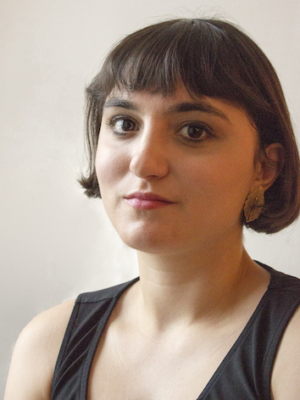Two Ways
[creative nonfiction]
In Spanish, there are two ways to say I am. The first, Soy, which is what you say to introduce yourself, implies stability and permanence. It’s a verb that expresses not action but the kind of stasis inherent in the self’s immutability. Estoy, on the other hard, embodies transience and ephemerality. It’s used to express feelings. This too shall pass, it reminds you. When I taught Spanish, my students constantly confused the two. “Soy triste,” they’d tell me. I am sad, forever. “Estoy una persona.” I am a person, but only for a little while. Their mistakes were funny and sometimes beautiful. After class, I wrote down my favorites in the margins of my lesson planner, though I had no one to share them with.
* * *
In Spanish, there are also two ways to say I love you. There’s Te quiero, which, though it translates literally to I want you, has no sexual connotations. A more accurate translation would be I care for you. Or, as I once heard a reporter on the radio describe it, I little love you. Te quieros come and go, like most feelings. And then there’s Te amo: an expression of love-with-a-capital-L.
* * *
I said “Te amo” for the first time when I was fifteen, to a boy named Rubén. We’d exchanged Te quieros for a few months and one night he touched my face and said, “Te amo,” and when I said it back to him, I felt us ascend, together, not to some higher plane, but definitely to somewhere else. Since Rubén, all of my romantic relationships have been in English. It saddens me, sometimes, that English doesn’t allow for such subtleties, such nuances in the expression of love. Then, I wonder whether the ecstasy of that leap between Te quiero and Te amo was a figment of my youth. Is it that love is different in another language? Or that love at fifteen is worlds away from love at twenty-nine? I am second-guessing myself, forever.
Antonia Angress was born in Los Angeles and raised in San José, Costa Rica. Her work has appeared in Arts & Letters, 45th Parallel, plain china, and elsewhere. She was the winner of the 2019 Writers’ League of Texas Fiction Prize, and a finalist for the 2019 Breakout 8 Writers’ Prize and the 2018 William Faulkner- William Wisdom Creative Writing Competition for a novel-in-progress. She is also the recipient of the O’Dwyer Scholarship from the Community of Writers at Squaw Valley. She holds a BA from Brown University and is currently pursuing an MFA in fiction at the University of Minnesota, where she is a College of Liberal Arts Graduate Fellow. She lives with her husband in Minneapolis and is at work on a novel.





